TAJI, Iraq - The 56th Stryker Brigade Combat Team's signal company has been fighting the heat and dust of Iraq to keep brigade units "on the horn" with each other. The Pennsylvania Army National Guard Soldiers understand that the performance of Soldiers on missions may depend upon how well they can communicate.
"In few places can you say life or death depends on being able to talk; this is one of them," Capt. Mark Campbell of State College, Pa., 656th Signal Company commander, said July 11.
The mission of the 656th, based in Torrance, Pa., and currently deployed to Camp Taji, Iraq, a base camp north of Baghdad, is to provide phone, internet and radio communication for the 56th SBCT. Campbell, who as a civilian works in information technology for the Penn State University library, said Soldiers of his unit aggressively look for communications problems to solve by routinely visiting units.
"We go ahead and we ask them, 'How are things going''" Campbell said.
Company first sergeant 1st Sgt. Robert Melego of Russdale, Pa., explained that his Soldiers began their time in Iraq, in January, assessing radios and transmission equipment. They worked to replace antenna heads and dry rotted cables and to stabilize antennas, all to improve the communication system they inherited from the departing unit at Camp Taji.
"This heat really deteriorates electronic equipment," Melego, who works as an electronics mechanic for the military in Coraopolis, Pa., said.
Melego said it took nearly three months to get the FM radio communications ability to the desired level. The unit had a goal of having no dead spots in the 56thSBCT's area.
"Our brigade commander [Col. Marc Ferraro] wanted to be able to listen when our DCLP's [supply convoys] went out," Melego said. "Now they have FM comms all the way from Liberty to Rowad."
"We covered the entire area of operations," Campbell added.
Campbell said the unit has had "a lot of successes." He and Melego said the unit has achieved about a 99 percent "up time" for the brigade's internet service while the brigade phone directory is now about 98 percent correct. Melego said phone books here had become about 50 percent inaccurate through the normal moving of equipment by previous units. Campbell said the first couple months in country saw his Soldiers working 18 hour days and more.
"We're providing the backbone for the internet and telephone service," Melego said, adding that everyone wants their phone to work and their emails to send.
An array of equipment near the brigade tactical operations center links the brigade to those beyond Camp Taji. The equipment is no good without the expertise of the 656th's Soldiers.
"There are a lot of pieces," Spc. Robert Sinclair of Indiana, Pa., a satellite technician, said.
Sinclair said part of his job is to check equipment readings to see if atmospheric conditions, such as dust storms or rain, are interfering with satellite communications. He explained that when a Soldier makes Defense Switched Network phone call a satellite 22,000 miles above earth makes the connection.
"That's what the delay [in a DSN call] is," he said. "A three to four-second delay is acceptable for 44,000 miles."
In triple-digit heat, keeping electronics cool is a challenge. Signal company Soldiers are continually using compressed air to blow dust from air conditioning units and communications equipment.
As he cleaned one air conditioner, used to cool a joint network node, Spc. Brandon Harper of Pittsburgh said cleaning the cooling equipment is at minimum a weekly task, with extra effort required during periods of dust storms.
"The JNN provides phones and internet," Harper said. "This controls the phone book for the brigade."
"The more dirt collects on the electronics, the hotter it gets; the hotter it gets the worse it runs," Sinclair said.
Melego said his unit had intensive training during long drill weekends in the year preceding the September 2009 mobilization of the brigade. He said his Soldiers can now take their experience with them and train new Soldiers.
"It was really good experience for these guys to get in here and set this up, in real time," Melego said. "It's going to pay huge dividends, in lessons learned."
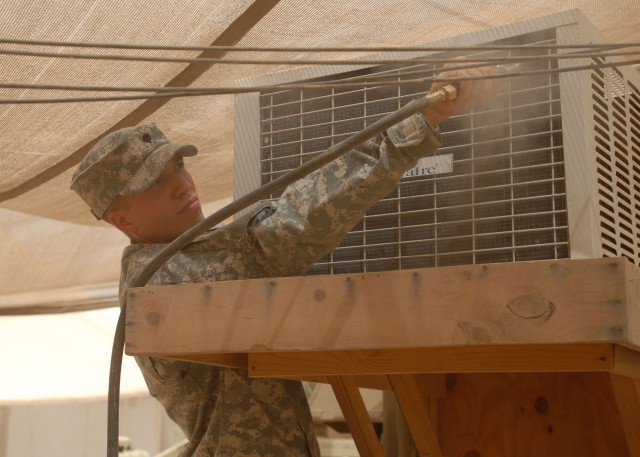
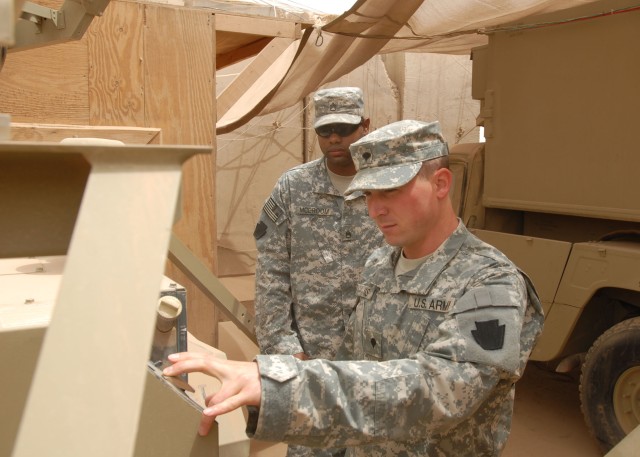
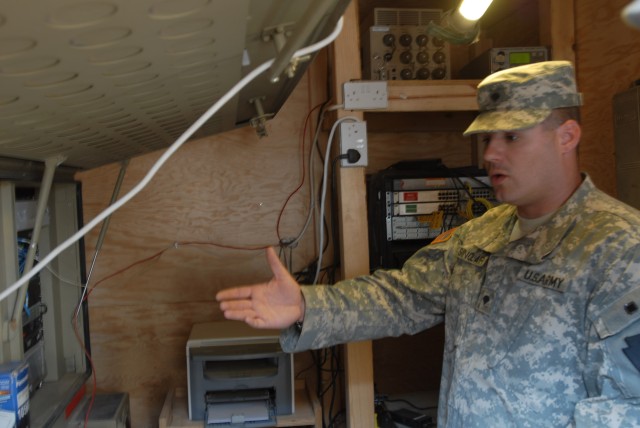
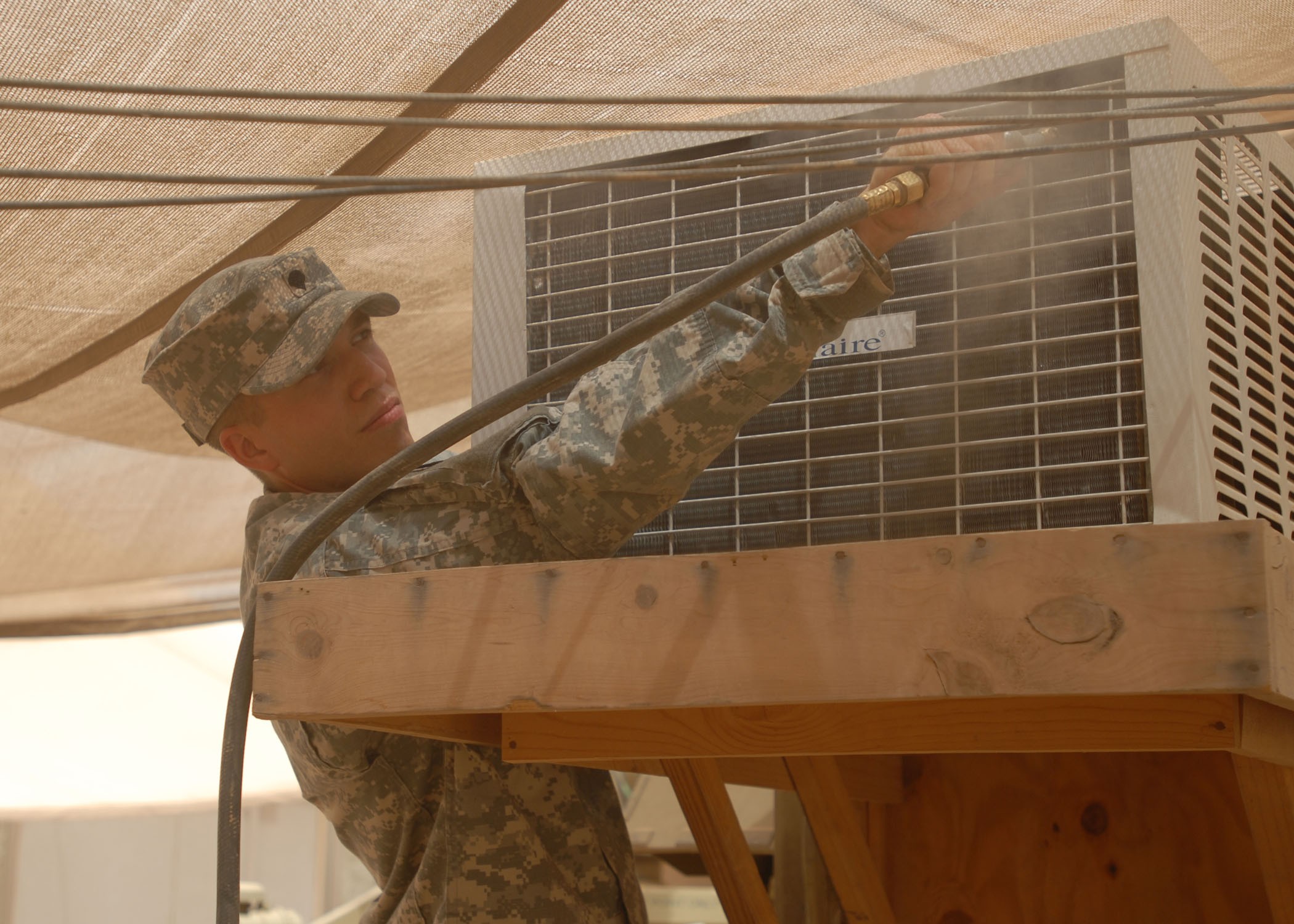
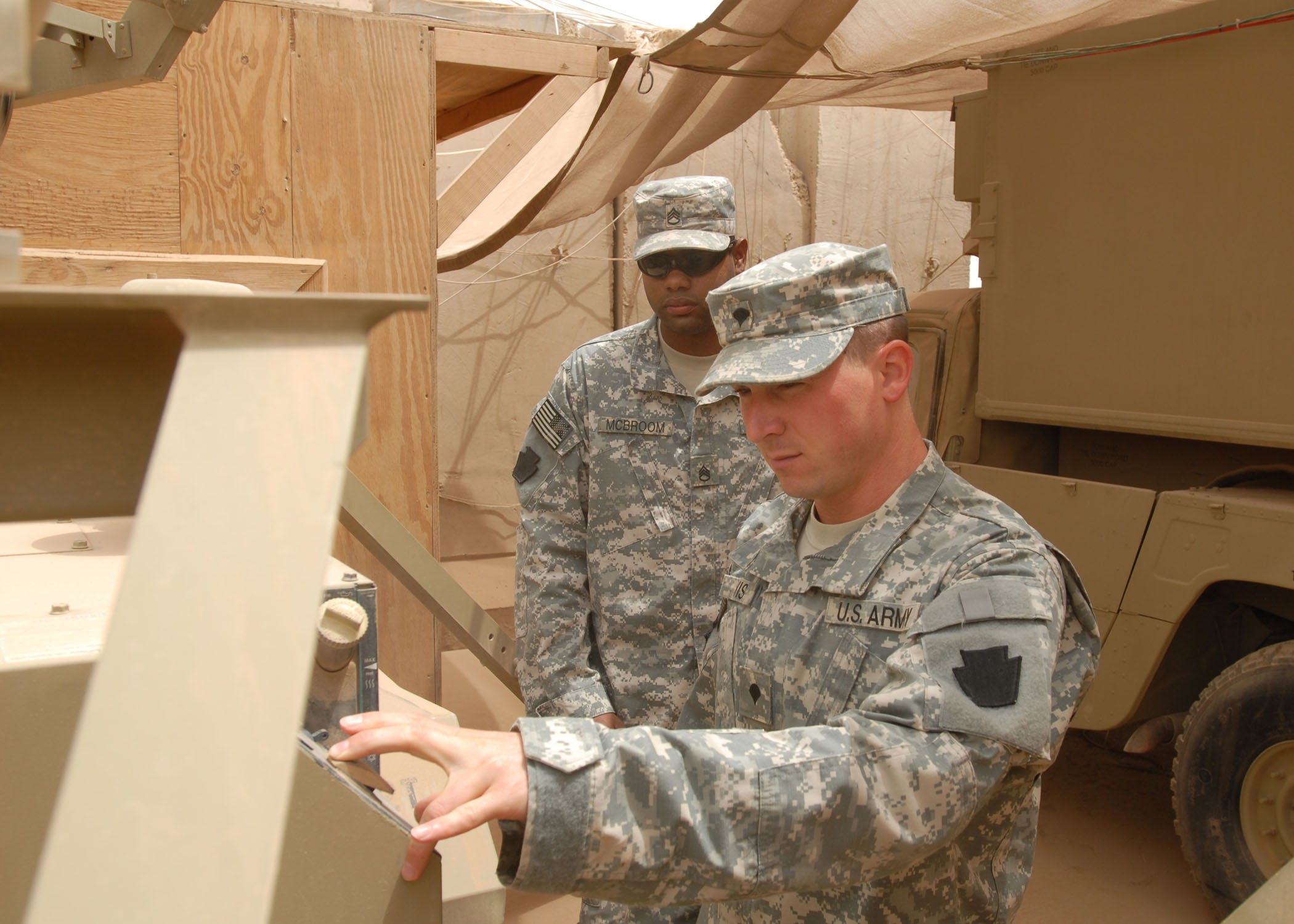
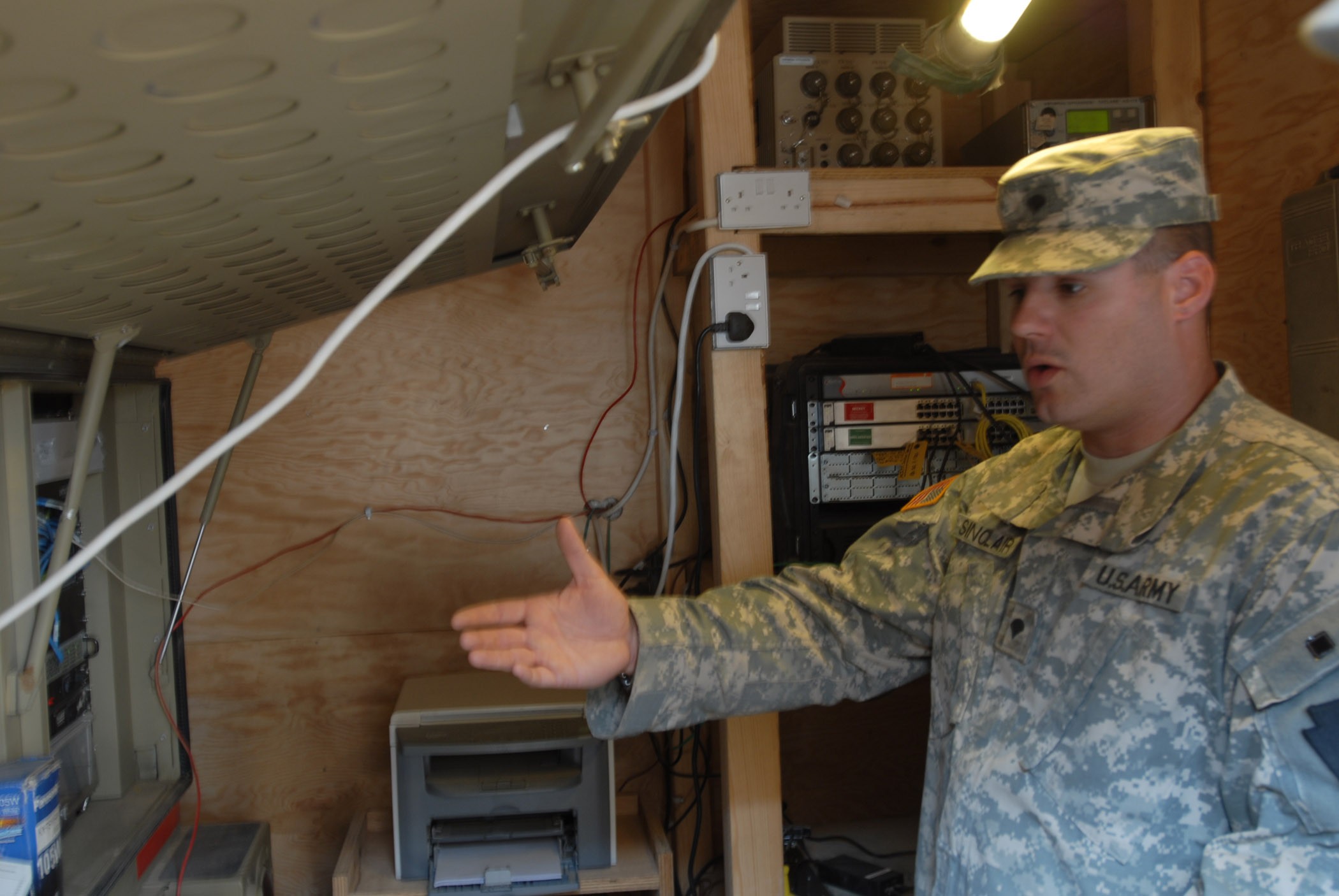
Social Sharing